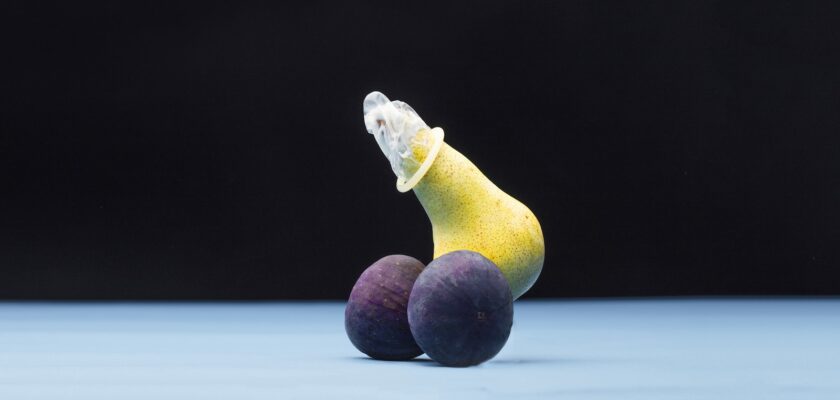Sperm can survive for a few hours in a condom after ejaculation. This is because some condoms contain spermicidal lubricant such as nonoxynol-9, which does not kill sperm but inhibits their ability to swim.
This is why you need to use contraception correctly. It is best to use condoms alongside other methods of protection such as the Pill or emergency contraception.
Temperature
Sperm cells need a specific environment to survive outside the body. Once they’re exposed to air, sperm cells begin to dry up quickly. This is why condoms are designed to be sealed tightly around semen. This helps prevent the sperm from coming into contact with air and reducing their lifespan. However, it is important to remember that condoms are not impermeable and a small percentage of unintended pregnancies occur even with the most careful use.
Condoms are usually coated with spermicide, which does not kill sperm but makes it very difficult for them to swim or move freely. This makes it almost impossible for sperm to fertilize an egg even if they are ejaculated inside the condom.
However, the longevity of sperm in a condom is also influenced by the type of lubricant used. Some lubricants may damage latex condoms and reduce their effectiveness, while others can help prolong sperm’s lifespan by lowering the friction between the sex organs. It is best to avoid oil-based lubricants and opt for water-based or silicone-based lubricants instead. These types of lubricants are safe to use with most latex condoms and do not damage the lining of the condom. They also tend to be more comfortable and can reduce friction between the partner. Water-based lubricants are also recommended for people with sensitive skin, as they can decrease the likelihood of a rash after sex.
Air Exposure
Sperm are the male reproductive cells that fertilize a woman’s eggs during sexual intercourse. They are relatively fragile and require specific conditions to survive outside the body. In the right conditions, sperm can remain viable for a surprising amount of time.
Condoms are designed to protect the female reproductive tract during sexual intercourse. They can be effective when used properly, but they are not foolproof. Many factors can affect the lifespan of sperm in a condom, including temperature, air exposure, and the presence of other chemicals.
The most significant factor influencing sperm survivability is temperature. Semen is most viable at body temperature, but it can die within a few minutes when exposed to air or other extreme temperatures. Condoms are designed to keep semen from being exposed to the air, which can help extend its lifespan.
Sperm can also live for a short period of time in a container that is filled with sperm-friendly cervical mucus. This is a common way for lesbian couples and single friends to use condoms for artificial insemination. However, sperm quickly loses its fertilizing capacities when it dries out or becomes too cold. It is possible to rehydrate dried sperm with liquid nitrogen, but this can be expensive and risky.
Light
Sperm can only survive on a moist surface or in a fluid. That’s why it is important to use a condom with enough lubricant, so it feels good during sex and doesn’t break. It is also a good idea to store your condoms properly, as they degrade over time and may become damaged or unusable.
Sperm is most likely to be killed by light, and air exposure. So if you keep your condoms in a dark place or wrap them in a towel to prevent air exposure, they will last longer. Also, it’s best to use a latex condom, as it provides better protection than other materials.
A condom with a thick lubricant will also help to prolong the lifespan of sperm, as it will keep the semen moist and provide a barrier to light and air. However, it is important to use a water-based lubricant and not an oil-based one, as the latter can cause the condom to rupture.
Some studies have found live sperm in the fallopian tubes of women 25 days after sex, so it is possible to get pregnant from semen that has been left outside the body for a long time. However, sperm that is ejaculated and kept at room temperature in a condom can survive for a few hours at most.
Water
In general, sperm only survive a few minutes outside the body and are almost instantly dead once they come into contact with air. They can last a bit longer when they are inside warm water but even then they are not able to fertilize an egg and will quickly die off again once they leave the water. This is why it’s important to take the proper precautions when using condoms. They should be kept away from direct sunlight and other environmental toxins to ensure that the sperm does not die prematurely. In addition, it is a good idea to use latex condoms as opposed to non-latex ones because they are more likely to hold the sperm in place better and prevent them from falling off.
The length of time that sperm can survive in a condom is also dependent on the type of condom and the condition it is in. Some condoms contain spermicidal agents that prevent the sperm from fertilizing an egg. However, these spermicides do not kill the sperm but rather immobilize them so they are unable to swim and move around in the condom. This is why it’s important to know if your condom contains spermicidal agents before you try and use them for sexual protection. It will help you to avoid accidentally getting pregnant by having sex with an infected partner.

